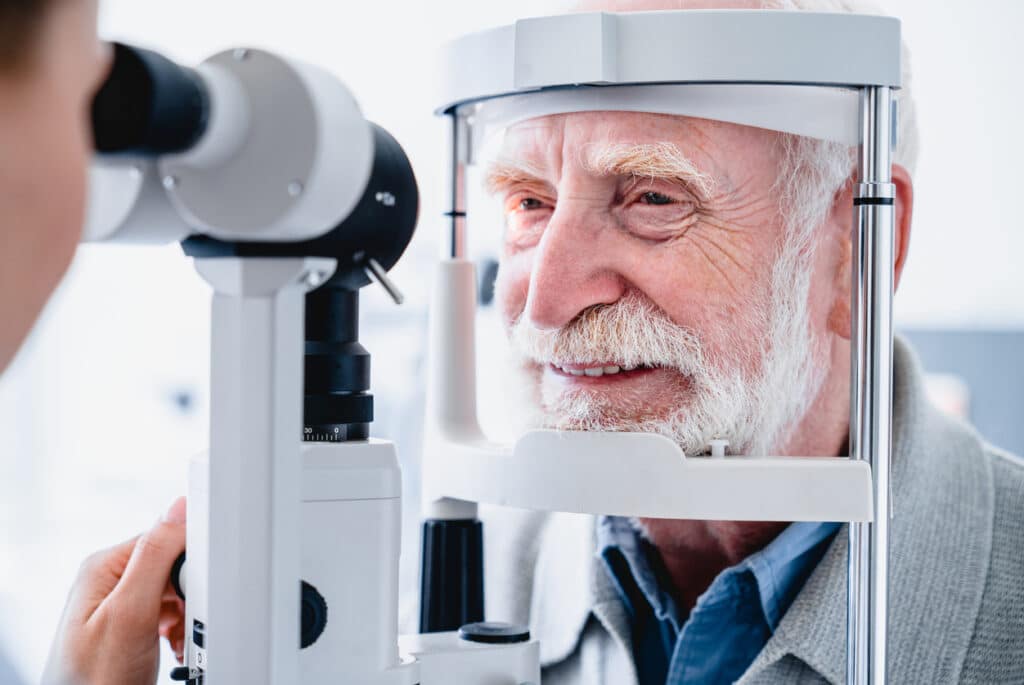
January is Glaucoma Awareness Month, an excellent time to examine how this chronic, progressive eye disease can affect seniors. The risk of developing glaucoma increases with age and will affect approximately one in twenty adults aged 65 and older. Glaucoma is one of the leading causes of vision loss and blindness.
What is glaucoma?
Glaucoma begins with the build up of fluid in the front part of the eye. The pressure that results from this extra fluid damages the optic nerve. As nerve fibers of the optic nerve die, blind spots will develop in the field of vision. The loss of vision cannot be reversed. Untreated glaucoma can eventually lead to blindness. However, treatment in the early stages of the disease can slow its progression and prevent additional vision loss.
Who is at risk for glaucoma?

People who are most at risk for developing glaucoma include the following:
· Those over age 60
· African Americans over age 40
· Persons of Hispanic/Latino heritage
· Those with a family history of glaucoma
· Those with thin corneas
· Persons with other health conditions including diabetes, high blood pressure, heart disease, and Sickle Cell Anemia
What are the symptoms?
Many people with glaucoma in its early stages have no symptoms. As glaucoma progresses, people may notice a loss of peripheral vision. Some people see halos around lights, experience blurred vision, eye pain, eye redness, and headaches.
Glaucoma tests are quick, painless, and noninvasive. Screening tests may include an angle exam, corneal thickness measurement, dilated eye exam, eye pressure check, optic nerve imaging, and a visual field test. Test results are immediately available from the eye doctor.
Early detection is the key to preventing irreversible vision loss. The American Academy of Ophthalmology recommends that seniors over age 65 have a complete eye exam every one to two years. These patients should be screened for age-related eye conditions including glaucoma, macular degeneration, cataracts, and diabetic retinopathy.
Next Steps
Renaissance Villages in Murrieta, CA offers a variety of living options for seniors. Our community gives residents the support they need while eliminating the chores and responsibilities of daily living such as cooking, cleaning, and laundry. Our residents have access to transportation to and from doctor appointments, errands, and outings. In addition, our staff monitors changes in the health and needs of all residents on an on-going basis.
Contact us today to schedule a walk-through tour of our residential facilities.

